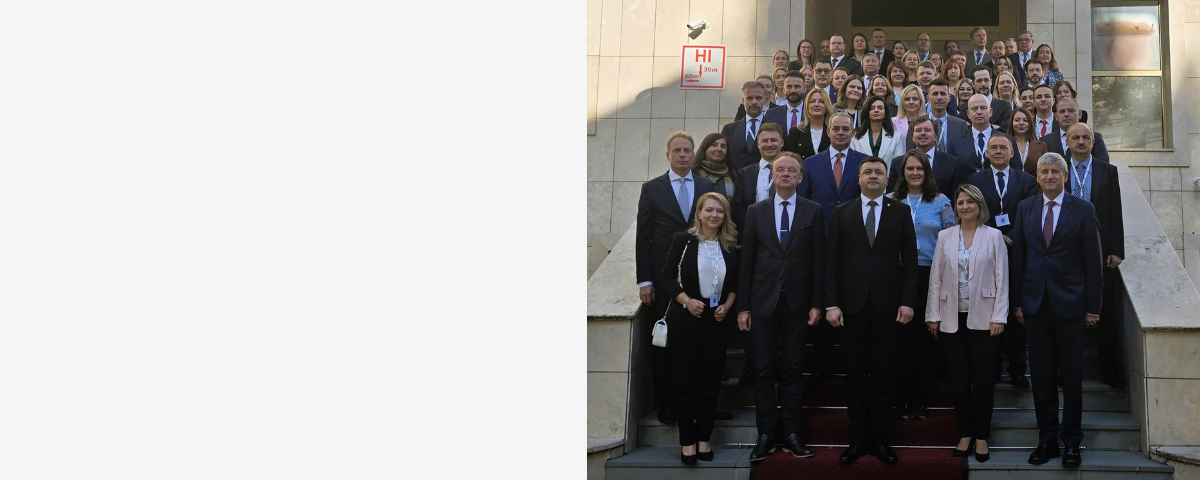Insights from the 7th International Border Management Conference

On 27 and 28 November 2024 in Tunis, the International Centre for Migration Policy Development (ICMPD) organized the 7th International Border Management Conference (IBMC) under the auspices of the Ministry of Interior of the Republic of Tunisia.
The Conference brought together over 260 participants from 47 countries, including policymakers and practitioner in border governance, representatives from European institutions, international organizations, and academia. Organized and supported by a number of projects and actions implemented by ICMPD, including the Prague Process, the IBMC fostered networking, knowledge sharing, and dialogue on pressing challenges and latest trends in border governance. The representatives of eight Prague Process states expressed their appreciation of this opportunity for learning, networking and collaboration, which aligns with the Prague Process Action Plan 2023-2027.









